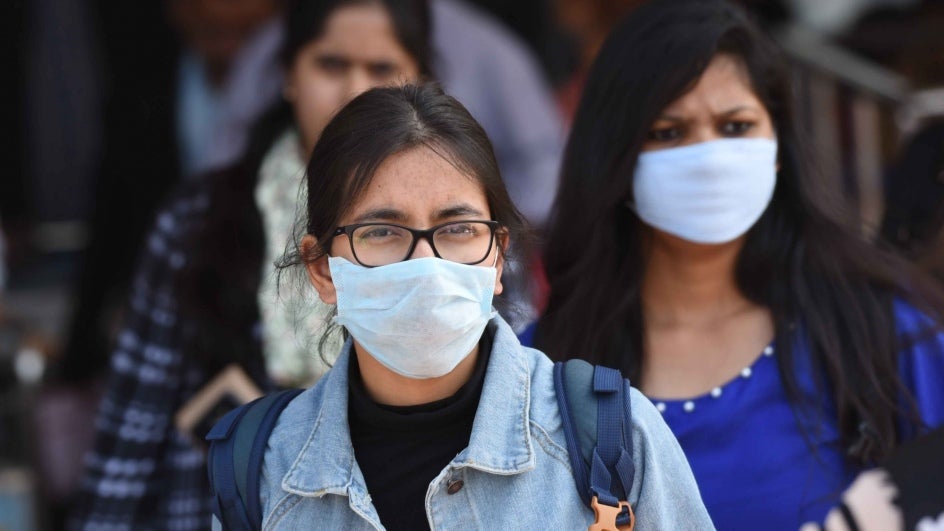In countries where differences of opinion are seldom aired in public, and where any marked divergence of views between a discussant and those in authority often meet with penalties, the apparent cacophony of competing and confrontational voices in a democracy gets taken as a symptom of weakness. In fact, such an apparent chaos is a sign of strength, just as the open expression of ideas and perspectives within a family is a sign of the health of relationships. The greater the trust, the more the willingness to listen to and where found necessary accept the other person’s point of view. In a country where it is a risk to personal liberty to challenge the opinions of those in charge, what happens is similar to the situation that took place in Hubei when the novel coronavirus first made its appearance. If China had been a democracy, the doctors who raised the issue of the new disease would have had little trouble disseminating that information on social and conventional media. In China, the doctors and virologists who understood the toxicity of Covid-19 and the risk that it was causing to public health were silenced. Unaware that they were spreading the disease across the world, civil aviation authorities in China permitted aircraft to land and take off from Wuhan months after it was unsafe to do so. The few social media posts of whistleblowers were erased and the experts responsible punished. The most courageous died as a consequence of a disease that he had warned about months before the authorities took it seriously. Of course, freedom of speech sometimes leads to problems. In the case of the novel coronavirus, several institutes gave exaggerated estimates of the lives that would succumb to the disease. As a consequence, panic set in and lockdowns became the norm. In India, the world’s biggest lockdown was imposed for months, because Prime Minister Narendra Modi’s government was particular that as many lives should be saved as it was possible to do so. The immense respect and credibility of Modi made more than a billion citizens obey the lockdown at severe cost to their economic fortunes. By spreading the virus across the world long after such movement was unsafe, the PRC has harmed itself, in that the market for products has shrunk drastically as a consequence of the collapse of economies. At the same time, across the world, public opinion has turned against China and its authoritarian system. If Donald Trump wins a second term in the White House it will be because he is seen as more combative towards China than Joe Biden.
If the New York Times, the Guardian or the Washington Post were to be believed, India was a haven of free speech until Narendra Modi became Prime Minister on 26 May 2014. In reality, whether it be Bengal or Maharashtra, those in authority have gleefully reached for the bludgeon of law and the police to silence those who raise inconvenient issues. The Information Technology laws have acquired so broad a scope that any manner of speech may be said to fall within its ambit. Sending to jail those responsible for posts deemed to be criminal when they were simply inconvenient has become commonplace, and no party is immune from such temptations. Freedom of speech is embraced by politicians when they are out of power, and discarded almost the minute they assume high office. This is unfortunate, as free speech needs to be protected. It is expected that both the government and the courts will understand the importance of freedom of speech and curb the tendency of public servants to use the processes of law to punish those who exchange abuse for flattery. Abuse is to be avoided, but those guilty of it get exposed when they utter phrases that have an unpleasant flavour. Each instance of playing with facts needs to be called out, and social media provides an immediate and convenient platform for doing so. To use the police or the force of law on such people adds rather than subtracts to their allure, for it gives them the sheen of martyrs. When Home Minister P. Chidambaram sent Anna Hazare to jail (most probably on the instructions of his boss, Sonia Gandhi), that single action made Anna Hazare a national hero, although in months he was overtaken in the public imagination by Narendra Modi. By his image of integrity and efficiency, the Gujarat Chief Minister was able to give the BJP a Lok Sabha majority for the first time since 1984. Abuse was rained upon CM Modi ever since he took office, but that did not make any difference in the esteem with which people regarded him. What counts is performance, and so long as there is performance, abuse and falsehoods will not touch the image of a politician. Freedom of speech may be inconvenient to some or to many, but so long as there is no incitement to violence or a call for secession, such outpourings in a democracy

